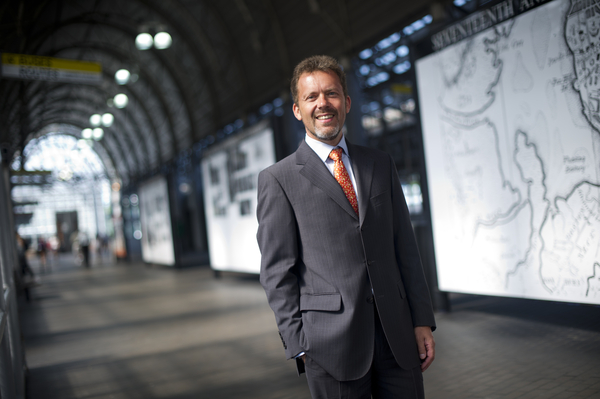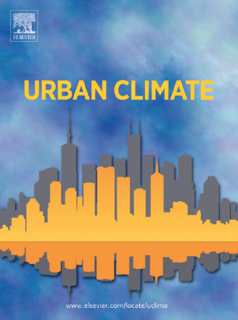Matthias Ruth to Serve as Founding Co-Editor-in-Chief of Urban Climate

New research worldwide is being directed towards ways by which urban areas change their environment and the environment changes them. With the support of Elsevier, one of the world's leading scientific publishing houses, Matthias Ruth, who holds a cross-college appointment in Civil and Environmental Engineering and the School of Public Policy and Urban Affairs, and Alexander Baklanov, Danish Meteorological Institute, are the founding editors-in-chief of a ground-breaking new journal, Urban Climate. In their Letter to Colleagues, the two editors write, "Climate conditions play a particular role in this context not just because climate change poses new challenges for any large agglomeration of people, infrastructures, institutions and ecosystems, but also because urban areas can play a lead role in humanity's quest for a relationship with the natural environment that allows societies to prosper and flourish for a long time to come." With its focus on the natural, engineering and social science aspects of the urban climate, the new journal – whose first issue appeared in November 2012 – embraces both disciplinary and interdisciplinary contributions, and seeks to connect research on the drivers behind and manifestations of urban climate with the planning, investment and policy making needed to address adverse environmental, social, economic and health outcomes. "With Urban Climate, we not only help shape a new field of scientific inquiry and serve as a forum for cutting-edge research globally," says Matthias Ruth, "but I am particularly excited that we do this with Northeastern University as an academic home of the journal."
Source: News @ Northeastern
Matthias Ruth, a professor with joint appointments in the College of Engineering and the College of Social Sciences and Humanities, is the co-editor in chief of a new academic journal that takes an interdisciplinary look at the relationship between urban dynamics and climate change.
“We have long thought about changing the global climate problem through global accords—which have had limited success, at best—and with this journal we want to look back at what cities can do to change climate on their own,” said Ruth, who is editing the journal with Alexander Baklanov of the Danish Meteorological Institute in Copenhagen, Denmark. “Within our own environment, there is so much we can do to impact climate, which is increasingly becoming a focus for climate researchers.”

The first issue of the journal, Urban Climate, was released last month, and another issue is due before the end of the year. It will be available for free online for at least the first two years of its publication. The journal has already received more than 100 submissions that focus on a range of topics, including urban environmental health, energy use, and public transportation in cities around the globe.
“More people live in cities than anywhere else now, so there is a recognition that we need to look at climate change at an urban level,” Ruth said. “We see this as a journal that equally addresses social and environmental issues, bringing them together at the local, urban scale.”
Ruth, who joined the Northeastern faculty this fall, takes an interdisciplinary approach toward the study of climate change and sustainability. He works at the forefront of ecological economics, which focuses on developing methods that integrate insights from economics, engineering, and the life sciences.
In a letter to colleagues published in the journal’s first issue, Ruth and Baklanov described their goals, saying that the publication’s research would closely examine the relationship between climate and urban areas, aiming to shape decision-making and policy moving forward.
“Climate conditions play a particular role in this context not just because climate change poses new challenges for any large agglomeration of people, infrastructures, institutions, and ecosystems, but also because urban areas can play a lead role in humanity’s quest for a relationship with the natural environment that allows societies to prosper and flourish for a long time to come,” the two editors wrote. “Urban climate, as a topic of research and focus for decision making, subsumes many of these challenges. … Being able to assist in that knowledge sharing and knowledge generation will, no doubt, be a great opportunity to which we look forward.”